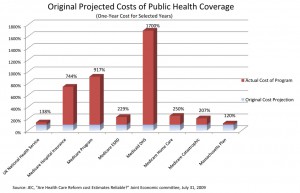Richard Epstein looks at the recent run up in gas prices and concludes that it's mostly because of an increasingly hostile posture towards Iran.
Without question, the problem can be traced back to a renegade Iran. For good and sufficient political reasons, the West has come to see that the Iranian nuclear threat is not just bluster. Indeed, it poses far greater risks to world peace and the political order than even a major disruption in oil supplies.
Hence an anxious West has now put into place a reasonably effective concerted effort to cut off Iran from the world’s banking system, and to block the use of Iranian oil internationally, which has been made easier by the Saudis’ willingness to expand their own shipments into the world markets. Nor have the Iranians sat back idly. They have cut off exports to the United Kingdom and France, a move that is largely symbolic. But the Iranian threat to close the Strait of Hormuz, through which about one-third the world’s oil supplies travel, is not symbolic. Nor is the movement of the U.S. aircraft carrier, the U.S.S. Abraham Lincoln, into the Strait of Hormuz, merely symbolic.
For both the short and the middle term, these developments have driven the base-line price of Brent crude from the North Sea up to around $119 per barrel. That translates into a potential price at the pump of about $4.25 per gallon, which undoubtedly will eat into the pocketbooks of many Americans.
He concludes that the worst possible thing, for gas prices, is for politicians to start looking for "something to do". (And, yes, he criticizes both Democrats and Republicans on this issue.) Rather, we should sit back and let individuals and companies figure out the best way to react to the increased risk and the possibility of sudden shortages.
The question on the table is how best to respond to the disruptions in oil supplies, not to pretend that these disruptions do not exist. On this score, the great advantage of a market system is that it forces Mr. Coudle (and everyone else) to think hard about the relative value of the goods and services he consumes and to make cutbacks in a cheap and rational fashion. In both good times and bad, people are always having to decide which goods and services to spend their incomes on, and which to forego.
Price movements give them an accurate, instantaneous, and impersonal picture of how other people value various goods and services. When oil prices rise, its least valuable uses are the first to drop out of the system. The decisions are typically made on a continuous basis, so that if some people find that they have cut back purchases by too much (or too little), they can increase (or decrease) their purchases in the next pricing period. Spurred on by these price increases, people can also make changes in their spending patterns elsewhere to offset the inconvenience of the higher prices for oil products. Purchasing a hybrid, insulating your home, and moving closer to work are just some of the many ways to save money. Good luck to Mr. Coudle, who provides an object lesson in how that task should be done.
The great risk is that the government will undermine the market by resorting to centralized devices to cap the price increases or to dictate its collective vision of the just price. Now is the time to recall the lessons of Friedrich Hayek’s best writing, the scholarly essay “The Use of Knowledge in Society” (1945), which is about the superiority of a decentralized price mechanism in response to system-wide shocks. As he reminds us, “The knowledge of the circumstances of which we must make use never exists in concentrated or integrated form, but solely as the dispersed bits of incomplete and frequently contradictory knowledge which all separate individuals possess.”
∞
